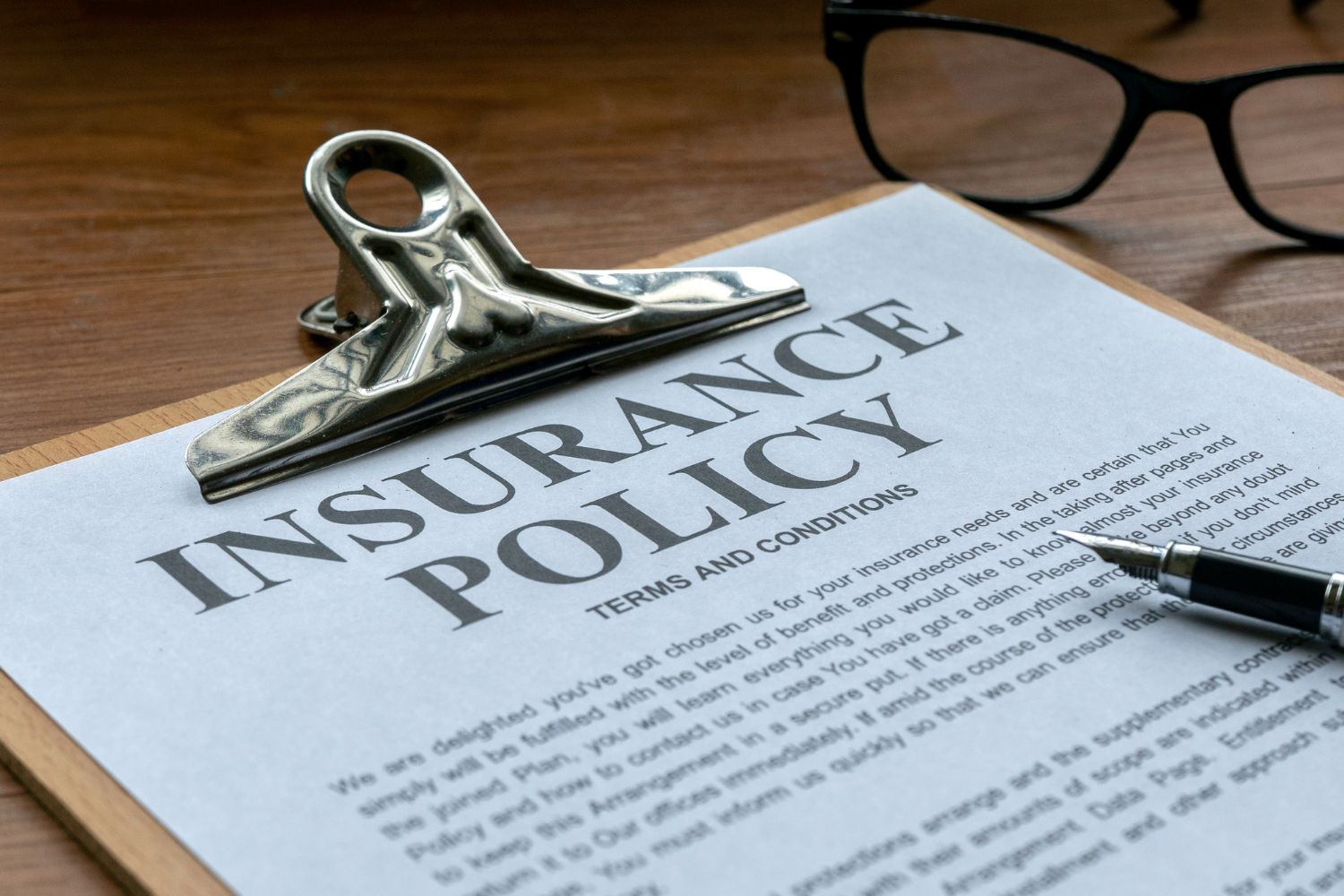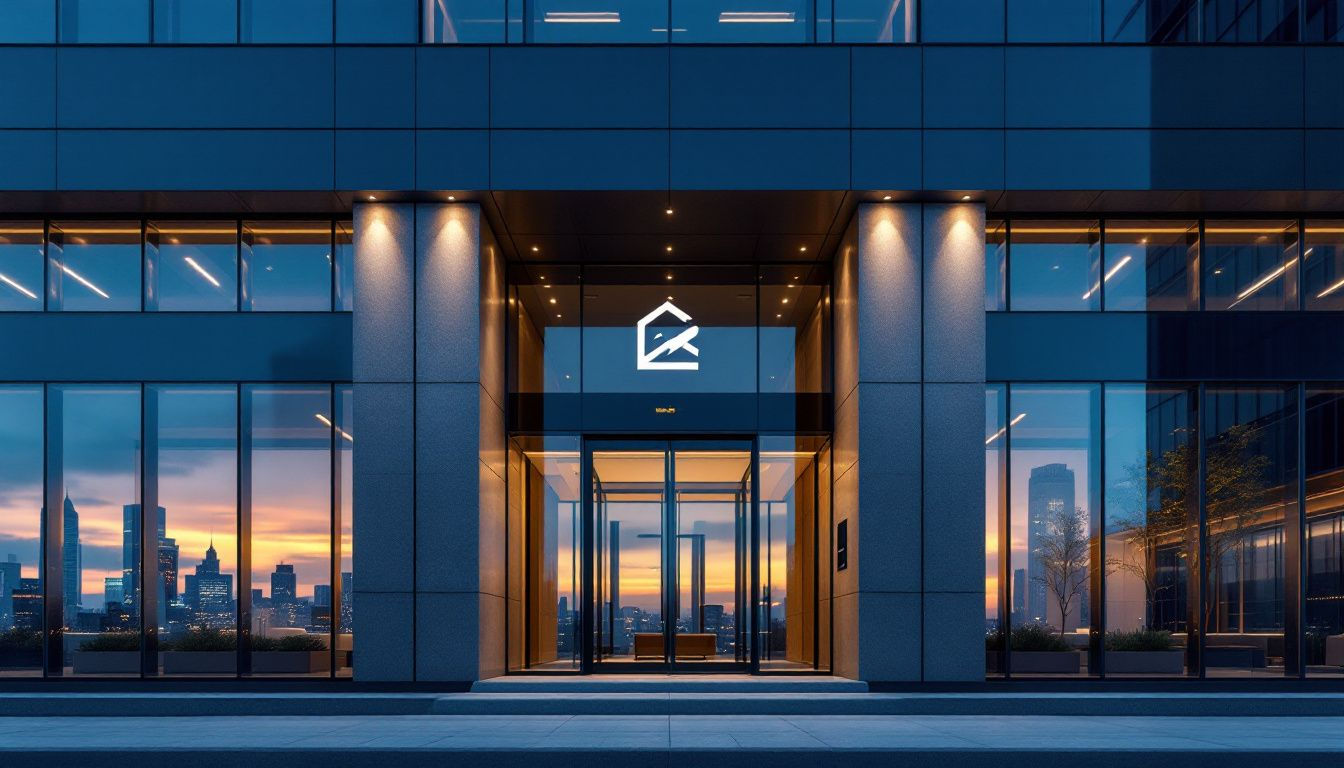Every cleaning company faces risks like property damage and employee injuries. Securing the right insurance for cleaning companies is vital to manage these risks. This article explains the key insurance policies your business needs, including General Liability, Workers’ Compensation, and Commercial Auto Insurance, to ensure financial protection and credibility.
Key Takeaways
-
Cleaning companies should prioritize General Liability, Workers’ Compensation, and Commercial Auto Insurance to safeguard against risks and enhance credibility.
-
Comprehensive insurance coverage protects cleaning businesses from potential lawsuits, property damage, and employee injuries, promoting long-term stability.
-
Choosing the right insurance provider involves comparing quotes, evaluating customer reviews, and considering additional services to ensure adequate protection for the business.
Essential Insurance Policies for Cleaning Companies
Navigating the myriad of potential risks is essential for every cleaning company. Acquiring appropriate insurance policies, such as those designed specifically for a cleaning business, is crucial in this process. A comprehensive insurance plan should incorporate General Liability Insurance, Workers’ Compensation Insurance, and Commercial Auto Insurance to cover various areas of vulnerability within your operation.
Not only do these types of liability insurances shield your business from monetary setbacks, but they also elevate its reputation by projecting an image of reliability and professionalism to clients.
General Liability Insurance
It is essential for every cleaning business to acquire general liability insurance. Such a policy provides coverage in instances of property damage and bodily harm inflicted upon non-employees during the provision of your cleaning services. Consider, for example, if an accident occurs where a client’s child stumbles over a mop handle left carelessly on the ground. The medical expenses and possible legal costs that may result from this event can be financially crippling. A general liability insurance policy steps in to shoulder these burdens, thereby protecting your business from severe economic hardship.
To physical incidents, this form of insurance also safeguards against claims related to personal injury or advertising mishaps that might occur within the scope of business operations. Whether dealing with accusations regarding negligence or issues involving property damage—it’s crucial for a cleaning service provider to have such an insurance policy as it acts as a buffer against potentially hefty financial losses while providing assurance and maintaining fiscal solidity within your entrepreneurial endeavors.
Workers’ Compensation Insurance
Another critical component of cleaning business insurance is Workers’ Compensation Insurance. This policy covers medical bills and lost wages for employees who sustain work-related injuries or illnesses. Given the physical nature of cleaning services, the risk of injury is always present. It ensures your employees are cared for by covering medical expenses and replacing lost income during recovery.
Most states mandate Workers’ Compensation Insurance for cleaning businesses, making it not just a smart choice but a legal requirement. This insurance shows your commitment to employee welfare and helps avoid legal issues, ensuring smooth operations.
Commercial Auto Insurance
Cleaning companies utilizing vehicles must have Commercial Auto Insurance, as it is essential for covering damages and associated legal fees from accidents involving company-owned vehicles. The importance of this insurance cannot be understated when considering the substantial risks involved in transporting cleaning equipment or traveling to various job sites.
The scope of coverage provided by this insurance extends from minor collisions to major crashes, enveloping repair expenses, medical costs, and any legal expenses that may arise. It serves as a critical component within a thorough insurance portfolio for businesses with vehicular operations by delivering financial stability and tranquility of mind.
Why Cleaning Businesses Need Comprehensive Insurance Coverage
Insurance coverage is crucial for cleaning service businesses due to the various risks they face every day, such as property damage, employee injuries, legal claims, and theft. These hazards consistently pose a threat of financial loss.
To counter these threats and ensure the continued success and stability of your business within the insurance industry, it’s vital to maintain comprehensive insurance that can alleviate these potential risks.
Protection Against Lawsuits
Should a customer assert that your business has been negligent or responsible for an injury, liability insurance becomes critical. It finances the legal defense and any resulting settlements, effectively safeguarding your company from devastating economic losses. As an example, general liability insurance would manage the expenses of defending against a lawsuit if someone were to fall on a wet floor at your premises and seek compensation for bodily harm.
Professional liability insurance is instrumental in offering protection against claims related to errors or negligence in services rendered by your business. These policies ensure security by guarding against possible lawsuits and financial obligations that could arise from such professional oversights.
Safeguarding Business Assets
Insurance plays a pivotal role in protecting critical business assets, including cleaning equipment and supplies. These resources are susceptible to accidents, theft, or damage that can interrupt your operations and impose considerable financial burdens. With adequate insurance coverage in place, businesses have the resilience needed to swiftly recover from any losses while maintaining operational continuity and stability.
Certain insurance companies provide risk management solutions aimed at mitigating possible claims before they materialize. Employing such forward-thinking measures not only safeguards valuable assets, but also contributes to uninterrupted workflow by decreasing the likelihood of unforeseen disruptions and economic challenges.
Enhancing Credibility and Trust
Having extensive insurance coverage greatly enhances the reputation and reliability of your cleaning business. A Certificate of Insurance (COI) is frequently requested by clients before they decide to do business, as it confirms that your cleaning company has sufficient insurance protection. Presenting a COI can aid in winning contracts and fostering trust with prospective clients.
Making known that you have a COI and offering the option for clients to be named as Additional Insureds on your policy increases their assurance when considering partnering with you. This demonstration of credibility could give your cleaning business an edge over competitors in a crowded market space.
Understanding the Cost of Cleaning Business Insurance
Knowing the cost of cleaning business insurance is crucial for budgeting and financial planning. Factors like location, number of employees, and type of services provided influence insurance premiums.
Understanding these factors and average costs helps businesses make informed insurance decisions.
Factors Influencing Insurance Costs
Insurance costs for cleaning companies are impacted by numerous factors such as geographic location, size of the coverage limits, number of team members, and length of coverage. Premiums might escalate if a company is situated in an area deemed high-risk or employs many workers. Awareness of these determinants enables businesses to estimate their insurance expenses with greater accuracy.
Securing an insurance quote necessitates providing crucial data like the variety of cleaning services rendered, business locale, employee count, payroll information, and vehicle particulars utilized in operations. Assembling this data to solicit quotes facilitates comparison across different insurers and aids businesses in finding cost-efficient insurance solutions that satisfy their specific coverage needs.
Average Costs for Common Policies
Typically, insurance for cleaning businesses encompasses general liability coverage at an hourly rate of approximately $6 or a monthly fee up to $38. Workers’ compensation insurance is crucial as it provides coverage for medical expenses and lost wages due to on-the-job injuries, with its average price hovering around $136 each month. Essential for any business using vehicles is commercial auto insurance which costs about $173 monthly. This contributes significantly to the overall expense of cleaning business insurance.
For owners of cleaning businesses, these indicative prices are vital in forecasting their budget dedicated to business insurance costs. Having insight into these figures helps in strategizing financial planning while ensuring comprehensive protection is obtained without excessive expenditure on premiums.
How to Choose the Right Insurance Provider for Your Cleaning Company
Choosing an appropriate insurance provider is essential to ensure thorough and dependable coverage. You should evaluate aspects such as pricing estimates, available coverage options, customer testimonials, and the extra services that the insurance company provides.
We will assist you in navigating these factors in this section so that you can make a well-informed choice regarding your insurance needs.
Comparing Quotes and Coverage Options
Gathering quotes from various insurance providers is key to finding an optimal mix of cost and protection. Scrutinizing the array of choices ensures that your particular requirements are addressed without incurring unnecessary expenses. It’s important to carefully review each policy’s coverage limits, any exclusions it might include, and the extra perks that come with it.
Leveraging online resources for quote collection can be a time-efficient strategy while offering a broad perspective on the policies at hand. Such tools aid cleaning businesses in selecting policies that not only provide sufficient coverage but also do so economically.
Evaluating Customer Reviews and Ratings
Assessing the dependability of insurance companies is greatly enhanced by examining customer feedback and ratings. Reviews that are favorable typically indicate that an insurer offers competitive rates, swift communication, and a hassle-free experience, which play a pivotal role when deciding on an insurance provider.
Exploring reviews across various platforms can shed light on the quality of service and efficiency in handling claims provided by insurers. This information is vital for fostering trust and assurance while choosing the most suitable insurance company.
Considering Additional Services
Numerous insurance providers offer supplementary services that amplify the benefits of their core offerings. These enhancements often comprise resources for managing risks, mobile applications designed to facilitate claim handling, and customer support available 24/7. For cleaning businesses in particular, these extras can significantly mitigate risk exposure and make business procedures more efficient.
Selecting an insurer that includes these value-added services could provide both additional convenience and effective satisfaction of your insurance requirements. It’s advantageous for cleaning businesses to factor in these extra capabilities when deciding on their insurance provider.
Getting a Certificate of Insurance for Your Cleaning Business
A Certificate of Insurance (COI) serves as crucial evidence that your cleaning business is equipped with the requisite insurance coverage. This document can be instrumental in obtaining contracts from clients who require verification of insurance prior to concluding deals.
What is a Certificate of Insurance?
A Certificate of Insurance (COI) serves as evidence that your business possesses the necessary insurance coverage. It contains information about the levels and kinds of protection in place, offering clients confidence that your company has sufficient safeguards.
After securing an insurance policy, businesses can acquire a COI at no cost through online platforms, enabling them to effortlessly demonstrate proof of their insurance when required. This facility enhances the perceived reliability and reputation of your business.
How to Obtain a COI
Acquiring a Certificate of Insurance (COI) can be done with ease. Simply reach out to your insurance company, ask for the certificate, and verify that it encompasses all essential information such as types of coverage and their respective limits. Numerous insurance providers provide immediate COI access via their digital platforms, enabling prompt acquisition of proof of coverage.
Showing a COI is often crucial in winning contracts from clients who insist on evidence of insurance prior to handing over work assignments. It serves as an indispensable instrument for showcasing adherence to mandated insurance norms and boosting trustworthiness.
Using COIs to Secure Contracts
Displaying a Certificate of Insurance (COI) while bidding can enhance the chances of landing more lucrative contracts, facilitating growth for your cleaning business. Demonstrating your insurance coverage to potential clients through email, text messages, or social media platforms builds trust and fosters confidence in your services.
For cleaning businesses, showcasing a COI during contract discussions is crucial to validate that they possess sufficient insurance coverage. Adopting this strategy can be instrumental in obtaining additional agreements and bolstering the credibility of your enterprise.
Filing an Insurance Claim for Your Cleaning Company
Navigating the process of submitting an insurance claim can seem overwhelming, yet it’s crucial for mitigating unforeseen financial hardships that stem from accidents or lawsuits.
We will provide you with a roadmap through the claims procedure in this segment to facilitate a seamless experience.
When to File a Claim
Understanding the appropriate timing to submit a claim is essential for preserving both financial security and trustworthiness. Circumstances that necessitate making an insurance claim encompass incidents of property damage or when employees suffer injuries while working.
Insurance specifically designed for professional liability can defray the costs of legal fees incurred during the defense against claims stemming from these occurrences, offering safeguarding measures for your business. Being aware of when it’s proper to file a claim is key in effective risk management.
Steps in the Claims Process
Typically, the initiation of a claims procedure involves the allocation of a claims expert who will lead you through the requisite stages. Initiating this process without delay by reporting the event as soon as possible is critical.
Carrying out an evaluation might be necessary to ascertain coverage scope and repair needs. Maintaining a forthright dialogue with your claim adjuster may accelerate proceedings and guarantee precise data sharing. Such a strategy facilitates swift settlement of claims, thereby reducing interruptions to business operations.
Tips for a Smooth Claims Experience
To ensure a seamless claims process, promptly record all specifics of the incident, capturing images and jotting down observations. Maintaining methodical documentation of every occurrence and correspondence with your insurance company can streamline the claim procedure.
Precise documentation paired with candid communication with your insurer is crucial. Taking this forward-thinking stance may accelerate the claim settlement and guarantee a favorable outcome. This enables your business to swiftly bounce back and carry on activities without significant interruptions.
Additional Insurance Coverage Options for Cleaning Companies
Essential for any cleaning business, general liability and workers’ compensation insurance provide fundamental protection. To safeguard your business against a broader array of risks, it’s prudent to consider additional coverage options. These extended policies contribute to the thorough security of your enterprise, promoting ongoing stability and operational continuity.
Business Owner’s Policy (BOP)
A BOP, or Business Owner’s Policy, amalgamates various forms of coverage into a single policy crafted specifically for the protection needs of small businesses. Typically, it encompasses General Liability Insurance alongside Commercial Property Insurance, thus providing an integrated solution for both liability and property-related business risks.
Providers such as Hiscox make it possible for owners of small businesses to purchase a BOP through online channels. This simplifies acquiring extensive insurance coverage. The policy stands out as particularly advantageous to small business owners by offering an economical means to handle diverse business risks comprehensively.
Professional Liability Insurance
Liability insurance for professionals safeguards cleaning businesses from allegations related to their service mistakes or oversights. It secures the business by covering legal expenses and any settlements that may arise due to accusations of negligence or errors, thereby preserving your company against economic setbacks.
Should a client allege that your cleaning services were inferior, professional liability insurance would take care of the associated costs for legal defense. This layer of protection is vital in upholding both the financial health and good standing of your business.
Equipment Insurance
Insurance for cleaning equipment safeguards your business by covering potential damages or losses, guaranteeing uninterrupted service delivery. It alleviates the economic burden that comes with the replacement or repair of tools and machinery in case they are compromised.
Incorporating Equipment Breakdown Coverage into a Business Owner’s Policy provides additional security for essential gear, offering an all-encompassing insurance solution for your company’s resources. This measure guarantees prompt restoration following any issues with apparatuses, supporting consistent operational performance and productivity within your enterprise.
Summary
For cleaning businesses, securing a broad range of insurance coverage is essential to safeguard against diverse risks and potential liabilities. Fundamental policies such as general liability insurance, workers’ compensation, and commercial auto insurance are cornerstones of comprehensive protection plans for these businesses. To bolster security Incorporating additional options like Business Owner’s Policies (BOP), professional liability insurance, and equipment coverage ensures the ongoing safety and reliability of your business operations.
It’s crucial for cleaning business owners to comprehend both the influencing factors on their premium costs and carefully choose an appropriate provider when seeking out necessary insurances. With thoughtful planning around this area of your operation strategy, you can protect not just assets but also strengthen your reputation in the market — laying down a sturdy foundation for dealing with any unforeseen circumstances that may arise within your venture.
Frequently Asked Questions
What is General Liability Insurance and why is it important for cleaning businesses?
General Liability. Insurance protects cleaning businesses from financial burdens due to property damage and bodily injuries to non-employees during services. This coverage is essential for safeguarding your business against legal claims and potential lawsuits.
Why do cleaning businesses need Workers’ Compensation Insurance?
Cleaning businesses need Workers’ Compensation Insurance to protect their employees from medical costs and lost wages due to work-related injuries, fulfilling legal obligations and ensuring employee well-being.
What factors influence the cost of cleaning business insurance?
Insurance expenses for a cleaning business are heavily dependent on the geographical area in which it operates, the workforce size, the extent of coverage desired, and the range of cleaning services provided.
Grasping these determinants is crucial to make precise predictions about insurance costs for your cleaning business.
How can obtaining a Certificate of Insurance (COI) help my cleaning business?
Securing a Certificate of Insurance (COI) is vital for your cleaning business because it serves as evidence of the required insurance coverage, which assists you in acquiring contracts from clients who demand insurance verification.
Such documentation not only enhances your reputation, but also safeguards your enterprise against possible liabilities.
What additional insurance coverage options should cleaning businesses consider?
Cleaning businesses should consider a Business Owner’s Policy (BOP), Professional Liability Insurance, and Equipment Insurance to ensure comprehensive protection.
This will safeguard your operations and assets against various risks.





